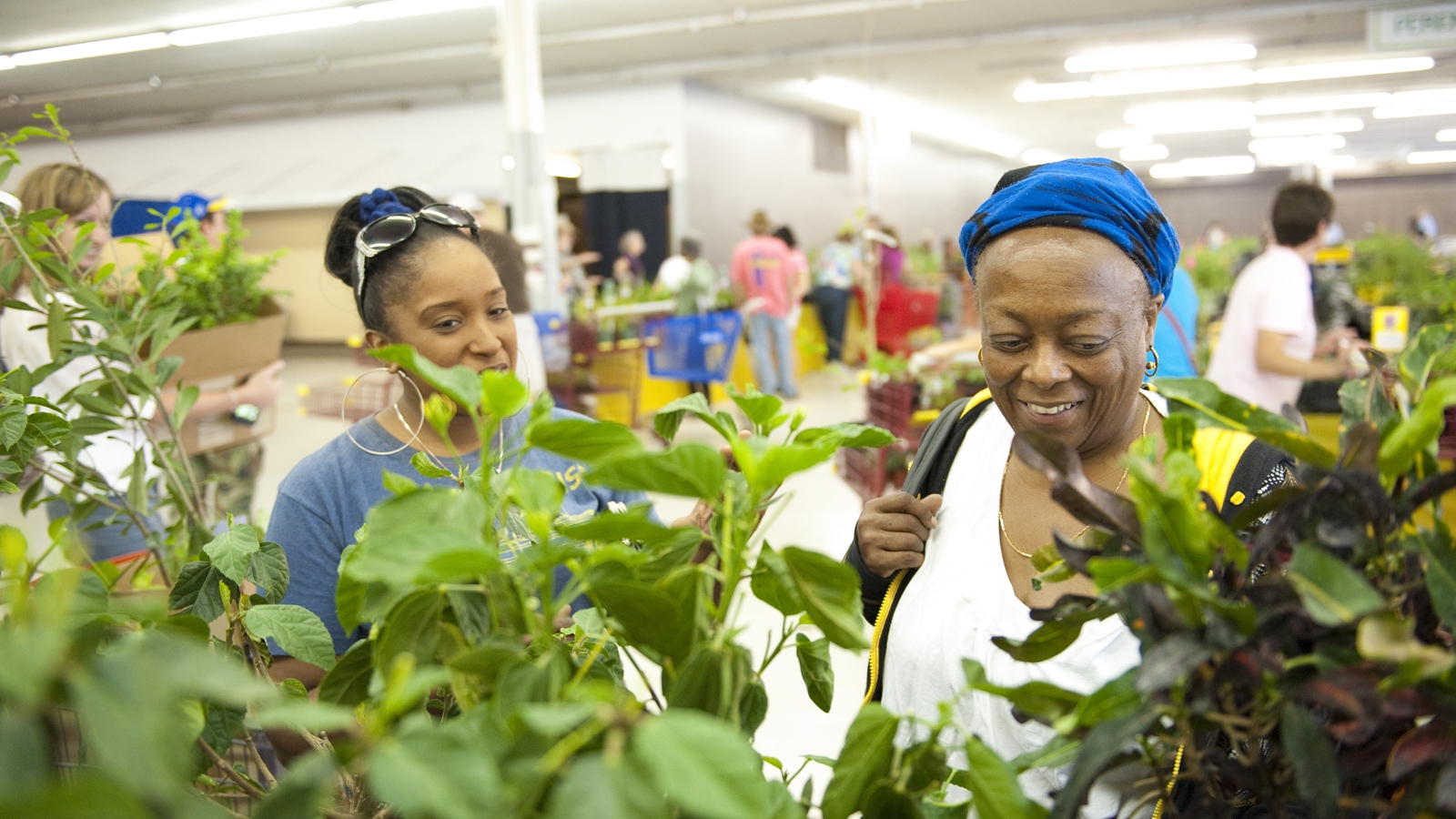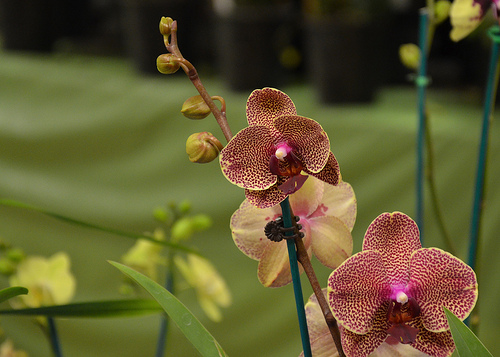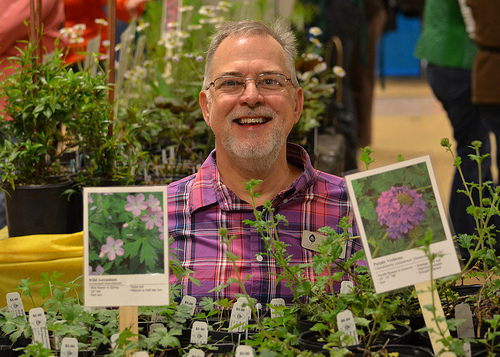Bat Researchers Visit From Kennesaw State
Researchers from Kennesaw State recently visited Ruffner Mountain to conduct research on the tricolored bat and how it is being affected by white-nose syndrome, a devastating fungal disease that has greatly reduced tricolored bat populations in the eastern U.S. over the last 20 years. Their research will be instrumental in the search to cure for this debilitating disease and in restoring the tricolored bat to its rightful place in the great southeastern biome. But first, what is white-nose syndrome?
White-nose syndrome is a fungal disease which affects the wings, nose, and other hairless parts of bats, and oftentimes, it is invisible to the naked eye. This particular fungus thrives in cold areas, such as the hibernacula, or winter resting place, of bats, posing a particularly urgent threat to these treasured fauna of the southeast, and the tricolored bat on Ruffner Mountain.
Perimyotis subflavus, the Tricolored bat, is a bat common throughout much of eastern North America. Although this miniscule bat is difficult to spot, every living thing in the Ruffner ecosystems feels its impact every day. As an insect-eater, it serves as an extraordinary natural pest-control. In fact, one tricolored bat can eat up to a quarter of its body weight in insects in only half an hour! They are small bats with yellowish-brown pelage, but the individual hairs of the bats are tri-colored: the base is dark, the middle is yellow, and the tips are dark, as well. Typically, tricolored bats are found in open woods and near water edges and tend to use deep caves and mines as winter hibernacula. Perhaps due to their longer hibernation period, this species has been especially devastated by white-nose syndrome with some population in the northeast extirpated completely and a loss of 60-80% of individual bats throughout the WNS affected range.
Pardon Our Progress...While We Make the Nature Center Even Cooler.
Progress continues on the renovations to the Nature Center, and already we've installed new welcome signage and a children's reading nook! Soon we will install brand-new signage for each of the exhibits and even more in-depth information on the astounding biodiversity of Alabama's greenways and waterways. Stay tuned for more in the coming weeks!
The 2017 Native Plant Sale Was a Success, All Thanks to You.
This year's Native Plant Sale was a resounding success, with hundreds of plants sold and a strong show of support from the community. The Southern summer heat seemed to come a little early, but we're fans of it anyway, and the plants seemed to be, as well! Check out some of this year's highlights below, and we'll see you at next year's spring Native Plant Sale!
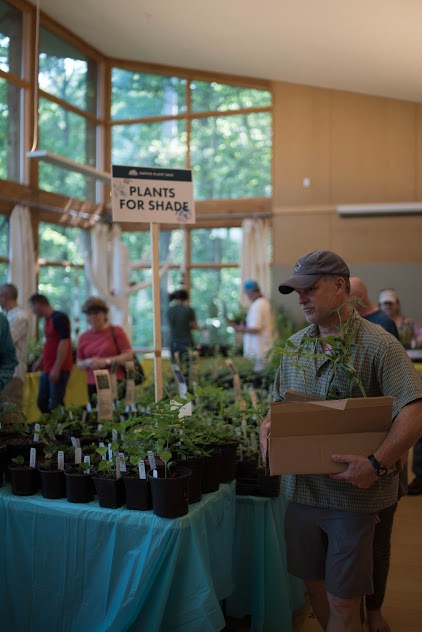
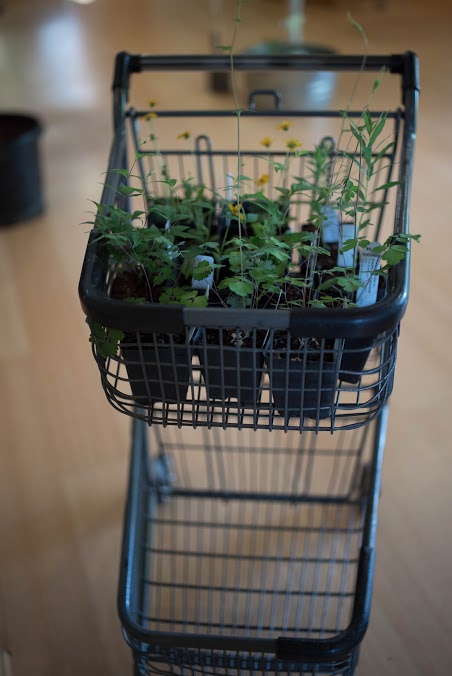
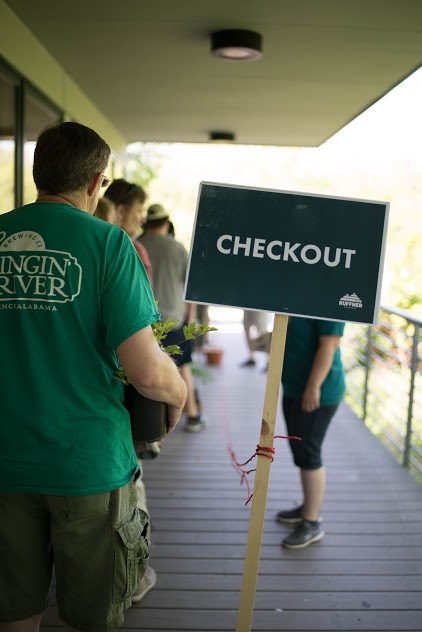

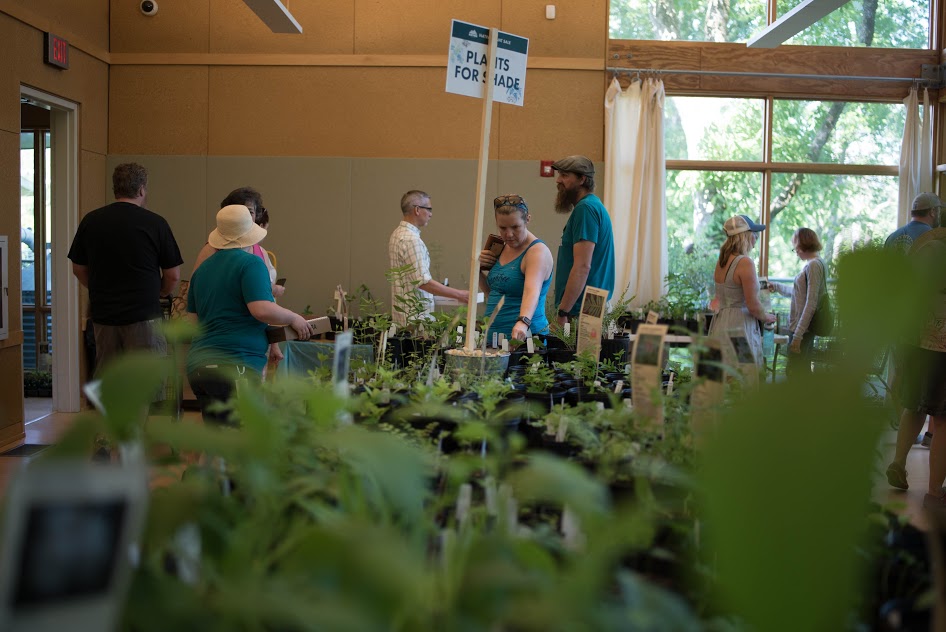
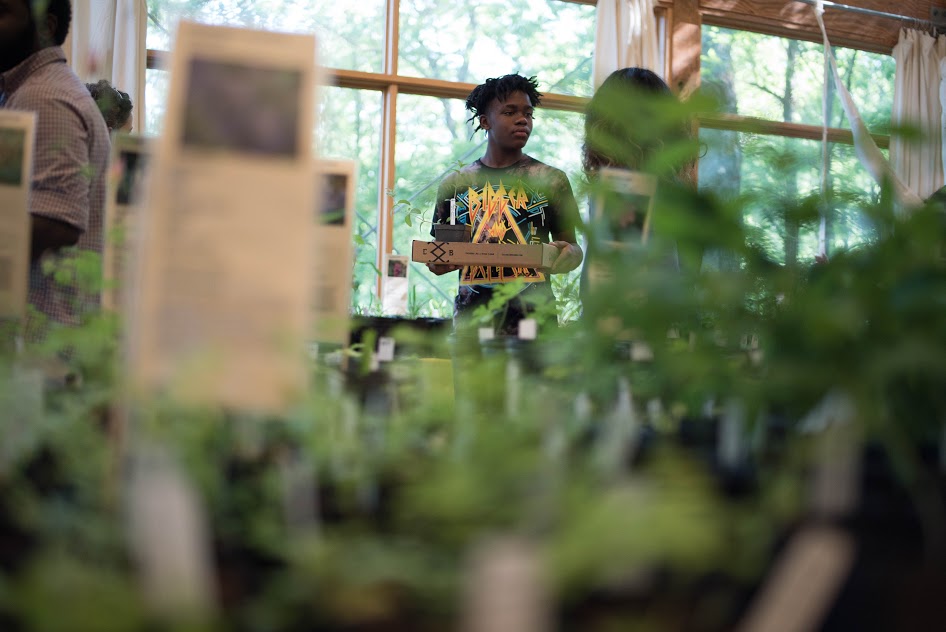
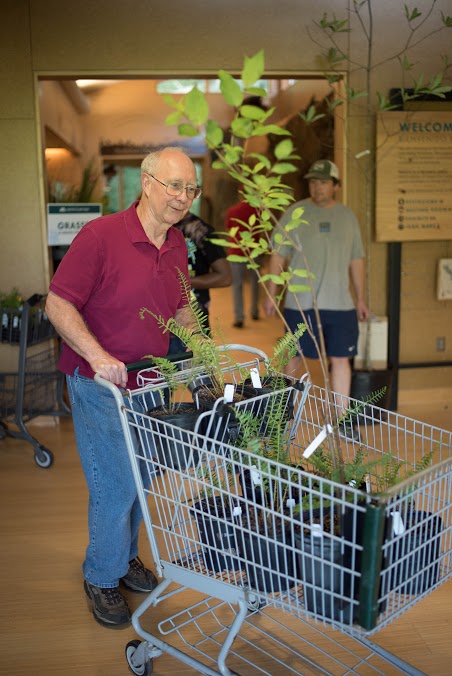
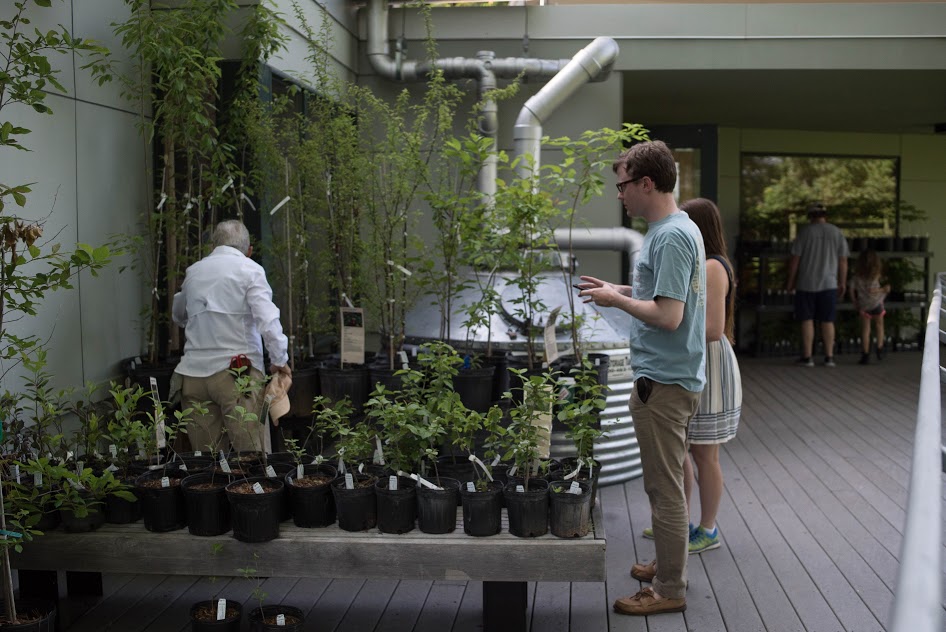
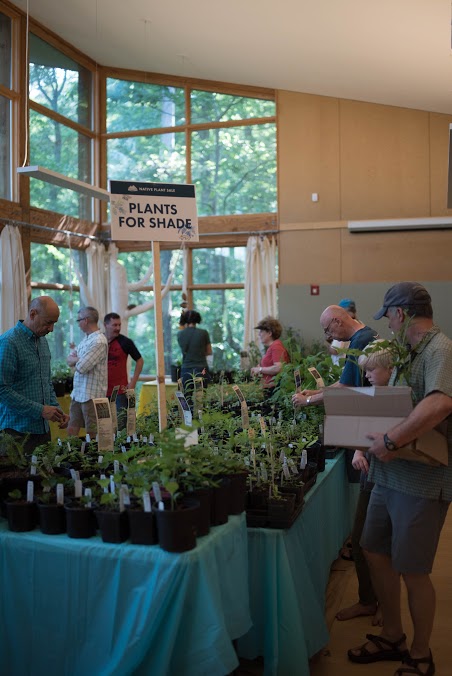
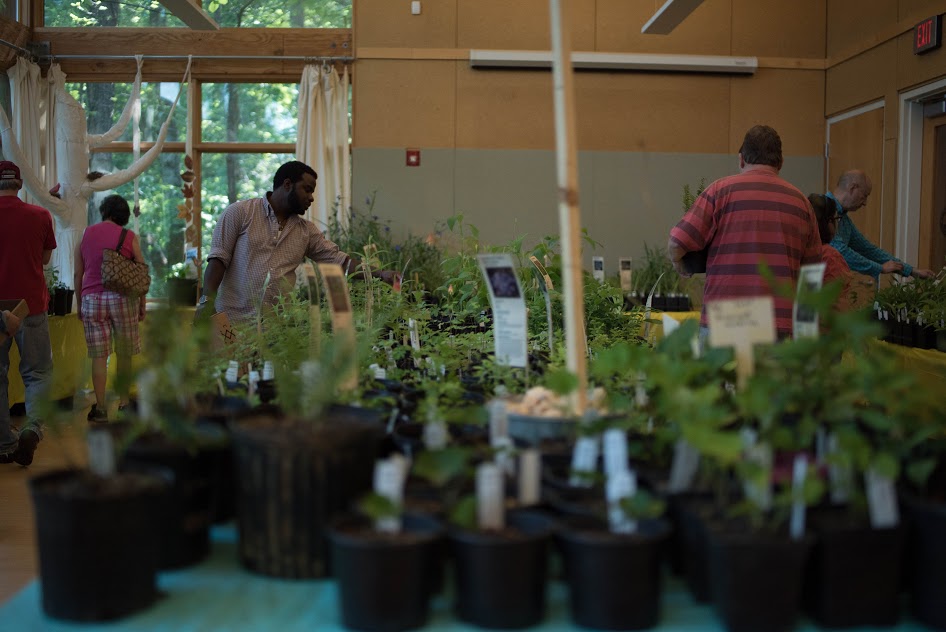
The Spring Native Plant Sale Is Here!
Ruffner Mountain, in partnership with Turkey Creek Nature Preserve, is proud to announce its annual spring plant sale will be Saturday, April 29, from 9 a.m. until 2 p.m.
The selection will include more than 40 species of native plants, including Bottlebrush Buckeye, Coreopsis, Dwarf Crested Iris, and a selection of native trees and grasses.
We hope to see you there!
Friends of Birmingham Botanical Gardens Spring Plant Sale
Join our friends at Birmingham Botanical Gardens for their Spring Plant Sale, Friday, April 7 through Sunday, April 9!
Friends of Birmingham Botanical Gardens Spring Plant Sale features over 100,000 plants, most of which have been nurtured by volunteers at The Gardens. This sale allows a unique opportunity, providing expert knowledge on the plants and by offering unique plants difficult to find in ordinary garden centers. And your purchase helps The Gardens reach its educational goals.
The Spring Plant Sale furthers The Gardens’ mission of promoting public knowledge and appreciation of plants, gardens and the environment while providing consumers seasonally appropriate planting advice from experts and satisfaction from supporting a worthwhile cause with each purchase.
Click here for more information: http://www.bbgardens.org/spring-plant-sale.php
The Habitat Garden Club Welcomes Spring
Join us every Tuesday, from 9 a.m. to 12 p.m., as we prep our native plant education garden sites for new plantings and the beginning of spring. This is a wonderful opportunity to learn more about the wildlife benefits of native plants while sharpening your gardening skills!
The native plant education gardens will enhance the aesthetics of the Nature Center and surrounding area while demonstrating the geology and ecology of the mountain, for both visitors and local schools. By evoking a sense of place and history these gardens will provide hands-on knowledge about the native plant communities and forest types on the mountain.
Where: the round-a-bout (chert circle), and the triangle median (limestone triangle)
Tasks:
Pulling weeds
Digging and potting up plants to transplant
Pruning and cutting back plants
Site cleanup
What to Bring:
Gloves
Hat
Appropriate shoes and clothes
Water and snacks
Hand tools
Shovel
Sunscreen
We hope to see you there!
*If you don't have tools of your own to bring, we will be able to provide some tools.






